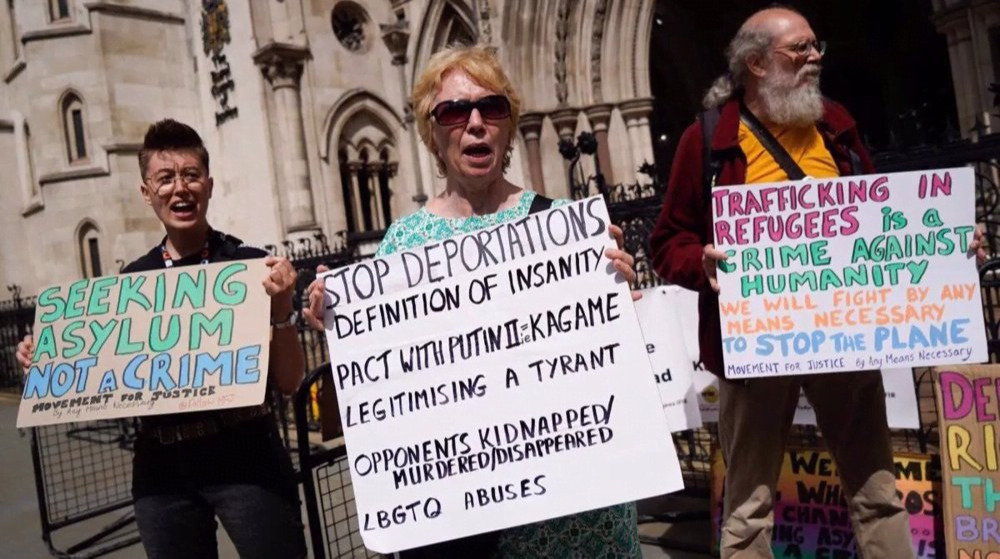
Britain has vowed to pursue its controversial policy to deport asylum seekers to Rwanda after the European human rights court issued last-minute injunctions to stop the deportation of the first group of migrants.
London, June 16 (RHC)-- Britain has vowed to pursue its controversial policy to deport asylum seekers to Rwanda after the European human rights court issued last-minute injunctions to stop the deportation of the first group of migrants.
British Home Secretary Priti Patel said on Tuesday she was disappointed that "legal challenge and last-minute claims" meant the first plane carrying asylum seekers did not take off, but insisted that the heavily criticized program would go ahead.
"We will not be deterred," she said in a statement, adding, "Our legal team are reviewing every decision made on this flight and preparation for the next flight begins now."
The first flight taking a handful of asylum seekers was scheduled to depart for Rwanda on Tuesday, but shortly before the plane was due to take off, the European Court of Human Rights (ECHR) granted injunctions to prevent their deportations.
Patel called the ECHR's intervention "very surprising," vowing that "many of those removed from this flight will be placed on the next."
Rwanda has also said it remained committed to taking in the asylum seekers under the April deal. "We are not deterred by these developments," government spokeswoman Yolande Makolo said. "Rwanda stands ready to receive the migrants when they do arrive and offer them safety and opportunity in our country."
The plan to send those seeking refuge in Britain to Rwanda, an East African country thousands of kilometers away, has come under fire from the UN, rights groups, and church leaders.
The UN High Commissioner for Refugees (UNHCR) has also warned that Rwanda does not have the capacity and infrastructure to handle the process, and there is a risk some migrants could be deported to their home countries.
The UK government, however, justifies his policy by saying that the deportation strategy will stop smugglers from flowing migrants across the English Channel.
Meanwhile, British Prime Minister Boris Johnson has also defended the scheme, vowing that London would "deliver" on its plan. Johnson told cabinet ministers on Tuesday that there was a "clear distinction" between immigrants entering the UK via safe, legal routes and arriving unofficially.
Karen Doyle, an organizer for the Movement for Justice, which opposes the deportation scheme, accused Johnson of "throwing red meat to racist voters" with the Rwanda plan. Doyle made the claim during an interview on BBC News on Tuesday.
Asked about how she would deal with people smugglers, she said, "Our nearest neighbor, Ireland, has just introduced an amnesty for immigrants." "This is possible. The block is our government that is determined to use immigrants for political gain. To throw red meat to racist voters. But the reality is that the majority of people in this country do not support this deal," she said.
Doyle also said Britain was obligated to help asylum seekers as it had historically contributed to the crises in some of the nations they are fleeing from.
"The reality is that the number of people claiming asylum in the UK as a whole has been either stable or going down for years," she added. "The numbers question is a red herring. The reality is Britain has a responsibility and a duty to people from nations that often it contributed to the crisis in those countries," she said.
Initially, about 37 individuals were set to be deported on the first flight, but then the number was dwindled to just seven people.
The grounding followed an ECHR ruling that at least one of the asylum seekers should stay in Britain as there were no guarantees for his legal future in Rwanda.

